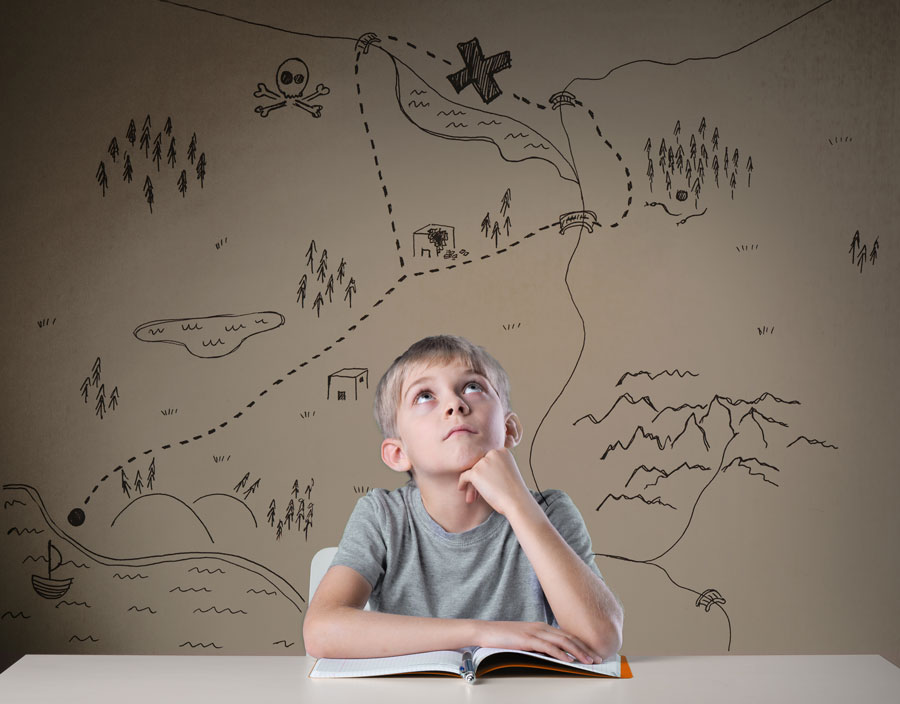What wouldn’t we do for our children’s brighter future? Of course, there’s not one thing we wouldn’t do for them. We are willing to risk anything to provide them the best in the world. We want to keep them happy and protected. In fact, we worry about everything from their school grades, social activities, health and self-esteem to their success. Thus, we often end up doing things for them on their behalf or preventing them from doing things we think they will fail at.
It is natural for us not to want to see our children hurt, physically or emotionally, but we certainly do not want them to stay under our protection perpetually, which is not even realistic.
Most of us will stumble and fall in life. It is almost impossible to go through life without experiencing some kind of failure. There are times that we are so afraid of failing at something that we decide not to try it at all or a fear of failure makes us undermine our own efforts to avoid the possibility of a larger failure. So, out of our own fear of failure and with good intentions, we sometimes become overprotective of our children.
However, there are benefits to allowing children to feel rather uncomfortable emotions such as stress or disappointment, and to experience the consequences for their actions when they face failure.
According to psychologist Dr. Jennifer Hartstein, children who are constantly bailed out of problems will come to avoid tough situations as they grow older. Also, when we shield them from failure it subtly sends them a message to pursue an image of perfection and instant gratification rather than focusing on potential success in the long run and taking responsibility for their actions.
Childhood is a great time to experiment and explore. But when children don’t experience what it’s like to fail, they miss the opportunity to learn from their mistakes and how to improve for the future. When we allow them to face failure, they learn to find creative solutions to their problems. When we rescue them, they get a notion that they don’t have to take responsibility for their failure and that things will work out without their effort, which may construct a false sense of entitlement.

Childhood is a great time to experiment and explore, and failure is just a natural part of that learning and growth process.
Children who are allowed to experience failure will also learn how to manage challenging situations. This leads to the development of resilience. Resilience does not only define recovery from difficult circumstances, but also a developed skill that enables children to bounce back from adversity, and prepares them to thrive during good times as well.
Those who have resilience do not let failure overcome them. They can handle that stress. If they don’t learn to adapt well in the face of adversity as a child, they won’t be able to develop coping skills to tackle the difficult situations that will come later in life. They might even attempt to harm themselves if they cannot recover from such situations. For those who live in fear of failure, failure is a threatening, judgmental and potentially shameful experience. Shame is a painful emotion, and thus, it is not surprising that children seek to avoid failure in achievement situations. Failure should not inspire feelings of shame, blame, humiliation, embarrassment or worthlessness in any way, however. Failure is not about getting it right every time. It is the process of taking action, evaluating the results, and making adjustment. Failure is indeed a natural part of the learning and growth process.
So, allow your kids to fail, and teach them to make adjustments which will eventually take away the negative emotions accompanying failure. Your children will learn what role their choices played in causing them to fail, how to respond differently the next time, and how to take responsibility for their actions.
It’s not always easy allowing children to fail. But the stakes get higher and the consequences get bigger as they grow older. The time to train them is now. The sooner we promote the positive aspects of hardship to children, and allow them to benefit from the upside of failure, the sooner they will have confidence and feel comfortable with trying things outside their comfort zone.
Failure is an expected aspect of our lives, so giving children the tools they need to bounce back from failure will be a valuable resource that will serve them the rest of their lives. As much as we’d like to, we can’t protect our kids forever, but we can give them the skills they need to be the best they can be. Early experiences with failure will help them make tough decisions as they get older and ultimately guide them to success.
Failure can also teach us things about ourselves that we would never have learned otherwise. Often, valuable insights come only after a failure. Accepting and learning from those insights is a key to succeeding in life.
It is entirely up to us to decide how to look at failure. We can choose to see failure as a proof of how inadequate we are or as the learning experience that it often is.



 Kris Lee
Kris Lee 